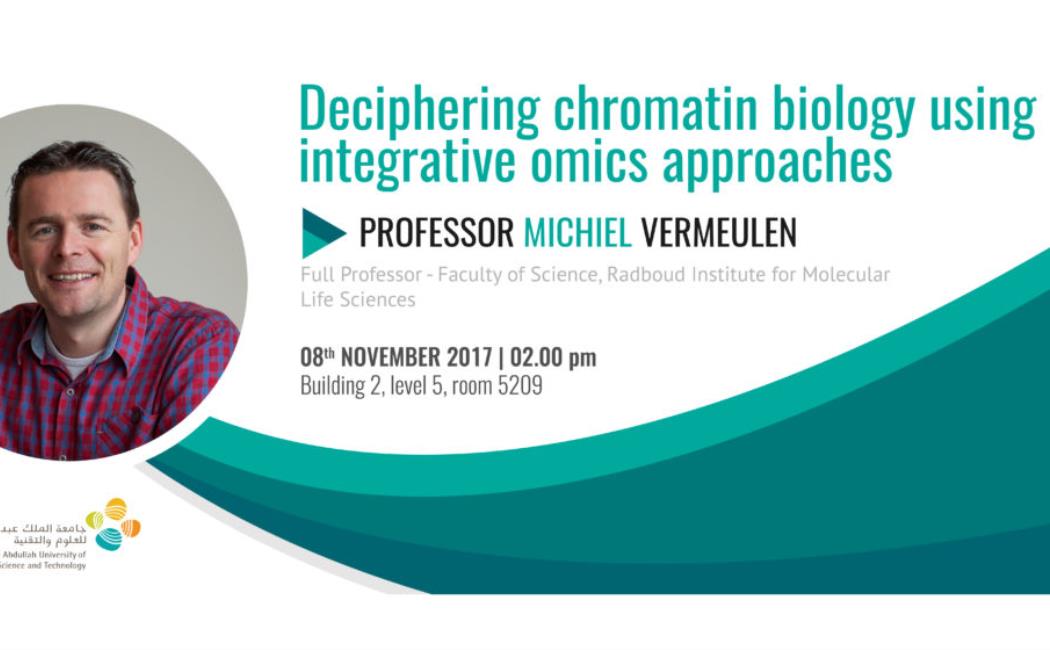
Deciphering chromatin biology using integrative omics approaches
The development of an adult human being from a single fertilized egg is accompanied by the generation of ~200 functionally distinct cell types. Each of these cell types expresses only a subset of the 20.000 genes that the human genome encodes for. Cell-type specific gene expression patterns thus ensure the generation of hundreds of phenotypes based on a single genotype. Transcription factors play an important role in driving cell specification, but so-called epigenetic modifications of DNA and core histones also regulate changes in gene expression and phenotype during development and during adult life. Our lab is using state-of-the-art quantitative mass-spectrometry based (interaction) proteomics and next generation DNA sequencing technology to decipher (epi)genetic regulation of gene expression in (differentiated) stem cells. In my lecture I will give an overview of current projects related to this topic.
Biosketch: Michiel Vermeulen performed his doctoral work in the laboratory of Henk Stunnenberg at the University of Nijmegen in the Netherlands. For postdoctoral work, he joined the research team of Matthias Mann at the MPI for Biochemistry in Munich. There he pioneered the application of quantitative mass spectrometry to identify interactions between nuclear proteins and modified histone tails. He was appointed assistant professor in 2009 and associate professor in 2013 at the University Medical Center Utrecht. Since 2014 Michiel Vermeulen is full professor at the Radboud University in Nijmegen, where his lab uses state-of-the art quantitative mass spectrometry based proteomics technologies to identify chromatin readers for epigenetic histone and DNA modifications.